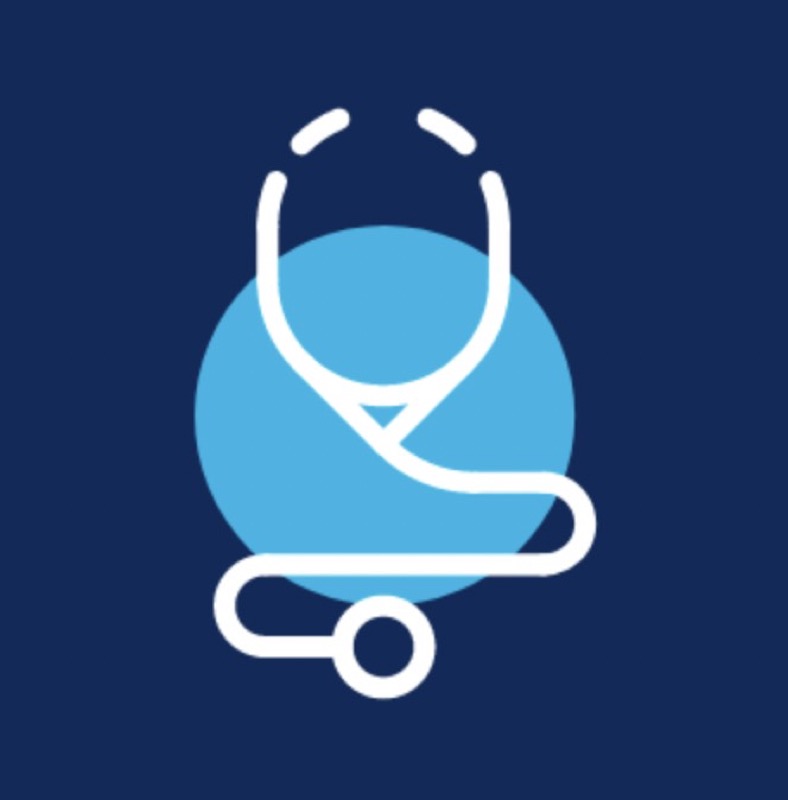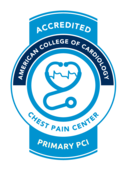 ACC Accredited Chest Pain Center with Primary PCI - The Only Hospital in Brevard and Indian River Counties to Hold this Designation
ACC Accredited Chest Pain Center with Primary PCI - The Only Hospital in Brevard and Indian River Counties to Hold this Designation
The American College of Cardiology has recognized Sebastian River Medical Center for its demonstrated expertise and commitment in treating patients with chest pain. Sebastian River Medical Center was awarded ACC Accredited Chest Pain Center with Primary PCI based on a rigorous onsite evaluation of the staff’s ability to evaluate, diagnose, and treat patients who may be experiencing a heart attack. Currently, Sebastian River Medical Center is the only hospital in Brevard and Indian River Counties to hold this designation.
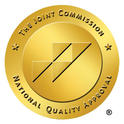 Primary Stroke Center Accreditation from The Joint Commission
Primary Stroke Center Accreditation from The Joint Commission
Sebastian River Medical Center has earned The Joint Commission’s Gold Seal of Approval® for Primary Stroke Center Accreditation by demonstrating continuous compliance with its performance standards. The Gold Seal is a symbol of quality that reflects a health care organization’s commitment to providing safe and quality patient care.
SRMC provides the following cardiovascular services:
- Cardiac catheterization
- Cardiac stress testing
- Diagnosing and Imaging Services
- Non-invasive imaging
- Nuclear medicine studies
- Vascular services
Cardiac Catheterization
Cardiac catheterization is used for the diagnosis and treatment of coronary artery disease, heart muscle disease and valve disorders. The process involves the insertion of a long thin tube called a catheter into an artery or vein through the wrist or groin, that is then threaded through the blood vessels to the heart.
SRMC’s interventional program features two state-of-the-art cardiac catheterization labs staffed by a team of specialists including interventional cardiologists, vascular physicians and trained staff who work together to clear blockages, perform angioplasties, and place stents, pacemakers, and defibrillators.
Heart Failure
Heart failure, sometimes referred to as congestive heart failure, occurs when the heart muscle doesn't pump enough blood to meet the body’s demands. Conditions such as coronary artery disease or high blood pressure, over time, can leave your heart too weak to pump efficiently. Heart failure can be categorized as chronic (ongoing) or acute (starting suddenly.) The damage caused by some heart conditions that lead to heart failure can’t be reversed, but treatments and technology can help improve a patient’s quality of life.
Some of the signs and symptoms of heart failure may include:
- Shortness of breath (dyspnea) when you exert yourself or lie down
- Fatigue and weakness
- Swelling (edema) in your legs, ankles, and feet
- Rapid or irregular heartbeat
- Persistent cough or wheezing with white or pink blood-tinged phlegm
- Swelling of your abdomen (ascites)
Heart failure patients are managed by a variety of approaches depending on their severity, health conditions, and other risk factors. Management of heart failure can include lifestyle changes, medical management with medications, minimally invasive cardiac catheterizations to open arteries, and technology including pacemakers and defibrillators
CardioMEMS Heart Failure System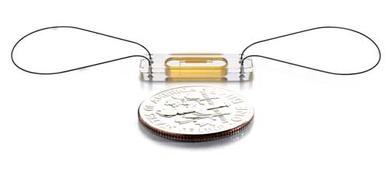
CardioMEMS Heart Failure System is a miniaturized, wireless monitoring sensor used to manage heart failure. The device allows patients to remotely share daily sensor readings from their homes to their health care provider allowing for personalized care and reducing the likelihood of hospitalizations and in-person appointments.
The CardioMEMS HF System sensor, which is the size of a paperclip, is implanted in the pulmonary artery – at the base of the right ventricle - during a minimally invasive procedure. The sensor picks up increased pulmonary artery pressure before weight and blood pressure changes, which are often used as indirect measures of worsening heart failure, and your healthcare provider is notified allowing for earlier treatment.
Heart Rhythm Disorders (Arrhythmia)
Heart rhythm disorders are characterized by an abnormal heartbeat - too fast, too slow, or uneven. An electrocardiogram (ECG or EKG) or a Holter monitor are used to record heart activity over a specified period. Treatments for arrythmia’s include:
- Medical management
- Lifestyle changes
- Cardioversion - delivering an electrical shock to the heart
- Implantable devices - pacemaker for slow heartbeat and a cardioverter-defibrillator (ICD) for fast heartbeat.
Emblem™ S-ICD System for the Prevention of Sudden Cardiac Death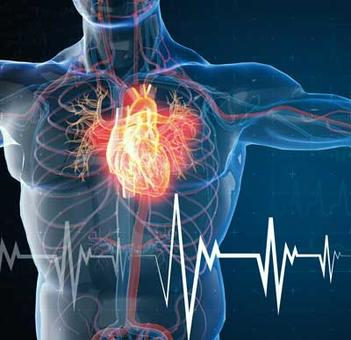
The EMBLEM™ S-ICD continuously monitors a patient’s heart rhythm 24 hours a day. If an arrhythmia is detected, the device sends out an electrical shock restoring the heart to its natural rhythm. Unlike a transvenous ICD device, the pulse generator is implanted on the left side of the chest near the rib cage while the lead and electrode are implanted just under the skin above the breastbone, eliminating the need for wires to be implanted in the heart. The main goal of the device is to prevent sudden cardiac arrest and the system is designed to be less invasive and safer for the patient. Patients that may be candidates for the S-ICD include those in heart failure, patients who experienced cardiac arrest caused by ventricular fibrillation, those with dilated cardiomyopathy and other cardiac conditions.
Vascular Services
SRMC vascular services focus on conditions and diseases that affect arteries, veins, and impair blood flow. Vascular specialists diagnose and treat conditions such as:
- Aneurysm
- Atherosclerosis
- Buerger's Disease
- Deep vein thrombosis
- Peripheral vascular disease
- Pulmonary embolism
- Varicose veins.
Treatment options include:
- Diagnostic technology
- Risk-factor management
- Surgical interventions such as angioplasty, atherectomy and stent placement.
Inari ClotTriever and FlowTriever Systems
Sebastian River Medical Center has quicker and less invasive treatments through the Inari FlowTriever for pulmonary embolisms (PE) and the ClotTriever System for deep vein thrombosis (DVT). Each is a non-surgical option that greatly reduces the risk of long-term complications (pulmonary hypertension and venous insufficiency, respectively) and has the added benefit of shorter hospital stays.
Steward Healthcare – Offering a Continuum of Cardiac Care
Individuals who need additional cardiac services, including open heart surgery, WATCHMAN procedure, or a transcatheter aortic valve replacement (TAVR), can choose to receive the highest quality care in the Heart & Vascular Institute at Rockledge Regional Medical Center.
Rockledge Regional Medical Center offers:
- Experienced and skilled cardiothoracic surgeons
- A dedicated cardiac team
- In some cases, the Sebastian River Medical Center interventional cardiologist may be able to follow the patient to Rockledge Regional Medical Center for additional care
- All cardiac testing can be done at SRMC
- All patient records and results are in one patient record system
- The patient will always be returned to the care of their home-based cardiologist
- The cardiac coordinator at SRMC will work with the patient and their family to ensure an easy transition to Rockledge Regional Medical Center.
If you are experiencing these symptoms or questioning whether you are having a heart attack, call 911 IMMEDIATELY!
Warning signs of a heart attack may include anxiety with some symptoms listed below.
- Discomfort in the center of the chest lasting more than a few minutes, or that goes away and comes back. It can feel like pressure, squeezing, aching, or burning.
- Excessive fatigue or weakness.
- Feeling of fullness.
- Nausea or vomiting.
- Pain or discomfort in one or both arms, the back, neck, jaw, and stomach.
- Shortness of breath, which might include breaking into a cold sweat, or feelings of nausea or lightheadedness.
Sebastian River Medical Center Scheduling Information
- Scheduling procedures or testing: (321) 637-3030

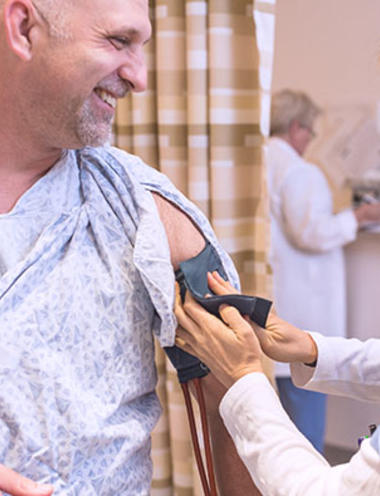
 ACC Accredited Chest Pain Center with Primary PCI - The Only Hospital in Brevard and Indian River Counties to Hold this Designation
ACC Accredited Chest Pain Center with Primary PCI - The Only Hospital in Brevard and Indian River Counties to Hold this Designation Primary Stroke Center Accreditation from The Joint Commission
Primary Stroke Center Accreditation from The Joint Commission

